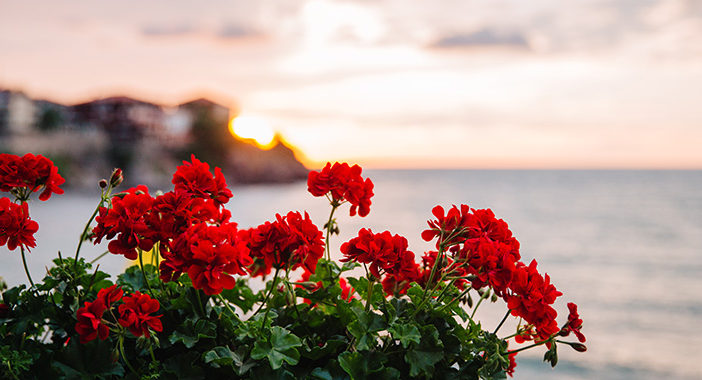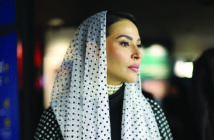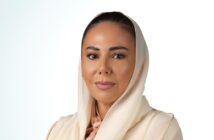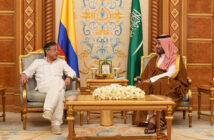Embassy of Bulgaria
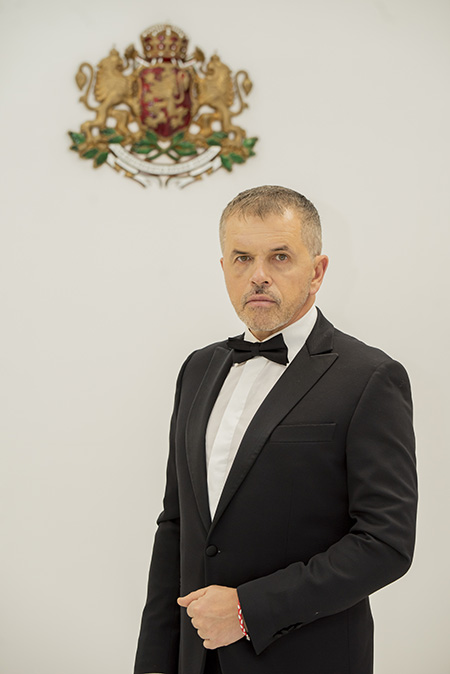 By ALEXANDER WOODMAN
By ALEXANDER WOODMAN
Photo credit to Hachem Photography
You are the first Bulgarian Ambassador to the Kingdom of Saudi Arabia. How would you describe your passion for this job and the opportunity to be the first in this position? What significant challenges do you face each day?
My appointment into a position such as this, in its infancy, is an honor. However, it does bring with its unknown challenges. It took quite a bit of creativity to negotiate a job that had no guidelines to follow. Needless to say, being the first ambassador and the predecessor of all future colleagues is a significant challenge. In the case of Saudi Arabia, the responsibilities were increased due to the importance of the country within its region. On reflection, it was an honor and a pleasure, as well as a great responsibility to plant the seeds of our relationship and ensure that it was based on mutual benefits.
It should be noted that the actual diplomatic relationship between Bulgaria and the Kingdom of Saudi Arabia had been established in 1995, whereas the Embassy commenced its operations in 2019, almost a quarter of a century later. There had been extensive preparations made over time. Although it was a young institution, I soon found out that the Embassy of Bulgaria had grandiose goals, many of which were well on the road towards successful implementation.
What values are part of your vision and strategies to help you form a good team that will work well with both the Saudi government and other embassies in the Diplomatic Quarter (DQ)?
Thanks to the generosity of the Saudi authorities, the Bulgarian Embassy has a very advantageous building situated in the DQ. The location of the building is a great advantage since it allows for networking with diverse diplomatic institutions as well as their representatives. The currently employed staff, though small, is extremely active in different facets of the operations of the Embassy and its responsibilities. There are consular, economic trade divisions, and financial-administrative departments handling various projects focused on the expansion of bilateral relations. Additionally, the staff works closely with an interpreter, whose job expedites complicated diplomatic procedures and diminishes the language barrier.
Having a team located in the Kingdom, operating within the Embassy, presents itself as a great chance to boost the political, commercial, and cultural relations between the two countries. Throughout the first year of the Embassy’s existence, many activities, such as conferences, meetings, and group discussions, were organized. This has also included several visits from Bulgarian authorities.
One of the first projects initiated by the Embassy was a Business Forum, which was host to the Bulgarian Minister of Economy, Emil Karanikolov. In addition to several large-scale events, the Embassy has also emphasized reinforcing the close ties with the small Bulgarian community in Saudi Arabia of about 150 people. Most of these expatriates have jobs in Saudi companies and contribute to the economy of the country.
The Bulgarian-Saudi Business Council was formed in 2010, earlier than the bilateral ties. What are the achievements of this decade?
The Chamber of Trade in Bulgaria first initiated the business forum, which led to the signing of an agreement for a Bulgarian-Saudi Business Council. Soon after, the Deputy Prime Minister of Bulgaria and the Minister of Economy made several visits to Saudi Arabia to expand the collaboration further.
Statistically, in 2010-2011, the stock trade between Bulgaria and Saudi Arabia was at its highest level due to Bulgaria’s barley exports. Such plenteous figures can be attributed to the trade agreements initiated by the Business Council. Although, before the establishment of the Embassy, such active economic relations often predict future success and serve to increase the productivity of the bilateral relationship. Now, with the Embassy in operation since 2019, the potential for increased numbers grows daily due to the hard-working people behind its service.
What is the vision of the Bulgarian Embassy for the year 2020? Are there any specific projects that are planned?
It is a challenging time, given the restrictions due to the Coronavirus pandemic outbreak. However, 2020 is still regarded as a critical year for the Embassy. One Saudi organization, Arkad Engineering & Construction Company, launched a project in the Bulgarian part of Turkey. After they won the bid started by Bulgartransgaz at the end of 2018, the building of a 484-km-long gas pipeline began. It stretched from a location at about a 50km distance from Varna, a Black Sea coastal city, towards the Bulgarian-Serbian border. Primarily, the project aimed to connect the country’s existing gas transmission system to the border with Serbia and carry gas from TurkStream. It was an investment of around €1.5 billion, financed by Arkad. A large project such as this one is sure to become grounds for a close collaboration between Bulgaria and the Kingdom.
We look forward to this year as we attempt to finalize the Airspace Agreement between the two countries, which is currently in its final stages of development. This will open the door for the possibility of a direct flight between the nations. We have explored several options, such as Jeddah-Varna and Riyadh-Sofia, and they are still in the discussion stage. The passage of this would be a significant game-changer in our nation, not only in terms of tourism but also in the field of business relationships and cultural integration.
Between 2016 and 2017, three significant agreements were signed between the two countries. They were the agreement on Cooperation in Tourism, Double Taxation agreement, and the agreement on Mutual Cooperation in Agriculture and Livestock. By 2017, bilateral trade had reached $269 million. Can you share your opinion on which markets, partners, clients, or other opportunities can add significant value to this amount?
As a side note, the cited figure above does not include military production exports. There are private Bulgarian companies working closely with the Kingdom on military exports; however, those numbers never make it into the trade figures. Of course, over $250 million sounds like an impressive sum of money, although there is a potential need for additional improvement. When access for energetic touristic exchanges is open, when more agricultural products are imported, and additional business partnerships are established, then will be the time to call it a total success.
Saudi investments in Bulgaria amount to about $9 million, which pales in comparison to what is expected after further collaboration between the countries. Strategically, Bulgaria plays the role of the tie between the European Union and Asia. They also have the best tax policy in all of Europe, since their corporate tax of 10% is the lowest in the entire European Union.
Their labor force is not only affordable and highly educated, but Bulgaria is considered to be the Silicon Valley of Europe when it comes to IT and software development. Many of the Western companies outsource their workforce and find the highest quality service in the Bulgarian professionals. It continues to be advantageous for Saudi companies to cooperate with Bulgaria to gain financial benefits. It also creates a permanent bridge towards the European market. For that reason, many global giants in the automotive industry, such as BMW, Mercedes, and Range Rover, produce most of their product parts in Bulgaria.
One of the central objectives of Saudi Vision 2030 is the diversification of the economy from oil dependence. What sectors do you think can be successfully developed in the Kingdom and foster its economy?
Vision 2030 is perhaps one of the largest and boldest reformation projects in modern history. As someone who took part in all three Future Investment Initiative Forums in Saudi Arabia, I have experienced the determination with which Saudi authorities have approached Vision 2030 and its practical implementation.
Although Vision 2030 contains many diverse projects, one of the most prominent is the plan for the expansion of the tourism industry. It poses a significant opportunity for Saudi Arabia, both in terms of leisure and historical traveling. Initiatives such as the Red Sea project, the Neom City project, and Al Ula will transform the way many foreigners view tourism in Saudi Arabia. The discovery of the coast of the Red Sea is sure to become a touristic revelation, as will the historical monuments that are everywhere in the Kingdom. So many unique sights will be available to the public.
The Diplomatic Quarter in Riyadh encompasses and houses most of the Embassies and foreign representatives. How do ambassadors use this opportunity to strengthen both bilateral ties with the Kingdom and multilateral ties? Are there specific projects initiated and implemented by the embassies of the DQ?
Once again, the Bulgarian Embassy is very grateful to Saudi authorities for being given a chance to be a part of the DQ community. In the future, the Bulgarian delegation hopes to own a piece of land in the area to build Embassy and establish roots.
The importance of being located in the DQ is something that does not go unnoticed during the daily diplomatic proceedings of the organization. The Bulgarian Embassy has been working very closely with its peers. It is organizing many bilateral meetings between ambassadors, and always keeping in touch with its international counterparts.
What is your favorite part of the DQ?
The DQ is an exceptional piece of architecture for many different reasons. One of the most apparent benefits is accessible communication with colleagues, which facilitates and accelerates countless processes. Leaving the diplomatic significance of the DQ aside, its security is something that is greatly appreciated. It is an open area with many lovely places to visit. Recently, the construction of a new sports facility, as well as a shopping mall, has commenced, which will help the area to flourish even more. Its distinctive design helps the city to have a visual identity and thereby present itself in a unique way to the outside world.

